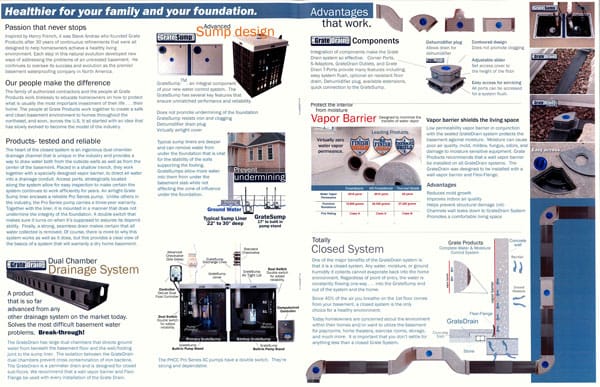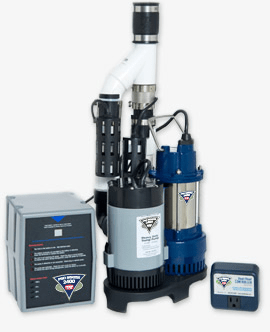The Magic of an Interior Basement Waterproofing System
Mar 06, 2012
Water in a basement space can cause a wide variety of problems for a homeowner.
Whether from an unexpected rainfall, flooding or from simple seepage, the prevention of water infiltration into the basement should be an important concern to every homeowner. By waterproofing the interior basement, homeowners can be sure that their basements remain dry and safe.
Interior basement waterproofing falls into two general categories, sealing and drainage.
 Sealing aims to completely eliminate the passage of water into the space while drainage accepts this fact as inevitable and, instead, chooses to divert the water to a collection point where a suitable sump pit liner is installed that will send the water to an appropriate location.
Sealing aims to completely eliminate the passage of water into the space while drainage accepts this fact as inevitable and, instead, chooses to divert the water to a collection point where a suitable sump pit liner is installed that will send the water to an appropriate location.
In arid or semi-arid climates, the amount of water in the ground is manageable and a waterproof seal is usually all that is required to maintain the watertight integrity of a basement space. Although in damper climates, basement waterproofing sealants are not an adequate solution to water infiltration, it is necessary to take a significantly different approach.
An interior basement waterproofing system that relies on the principle of drainage can handle a far greater amount of water in a far more reliable manner than a simple sealant. In addition, this type of system can be installed with relative ease in an already finished basement and for far less cost than installing an external basement waterproofing system.
The drainage system is installed around the perimeter of the basement intercepting water at its most likely site of entrance, the wall /floor interface. This interception has the added benefit of stopping the water from migrating under the basement slab and then seeping into the space through the middle of the floor.

When properly installed, an interior basement waterproofing system is invisible to the occupants, impervious to decay and extremely resistant to blockage. These systems are fundamentally different from sealants. Their main advantage is that, rather than fight an unstoppable force of nature, this system uses other properties of nature, namely gravity, to divert the water and maintain the dryness of the space.
The benefits of an interior basement waterproofing are significant. In addition to protecting the finishes, furniture and floor s of your basement, they relieve the ambient water pressure on your foundation and eliminate any standing water that may damage your wood structure. Consider all the options before deciding on the correct waterproofing solution for your basement.


